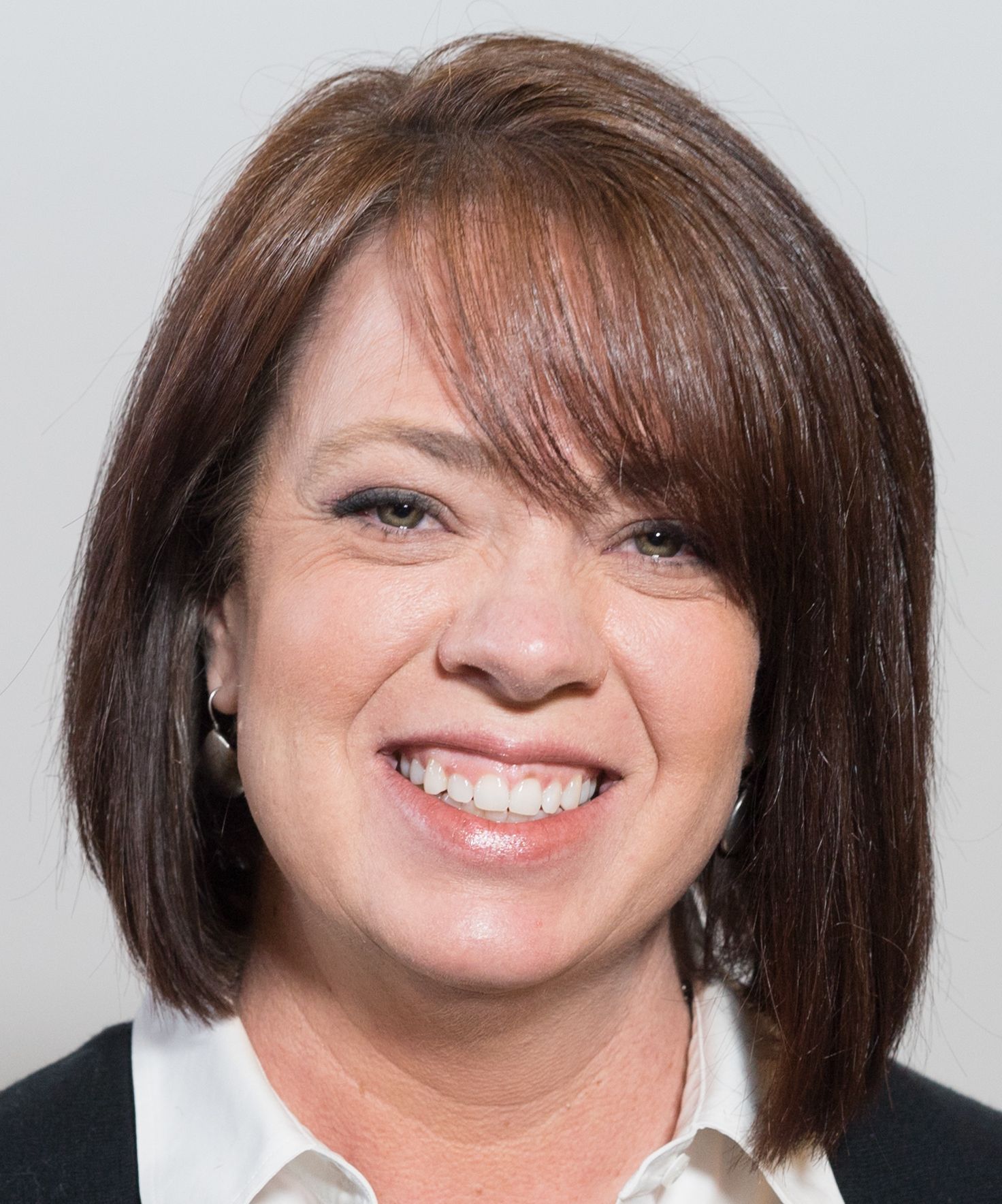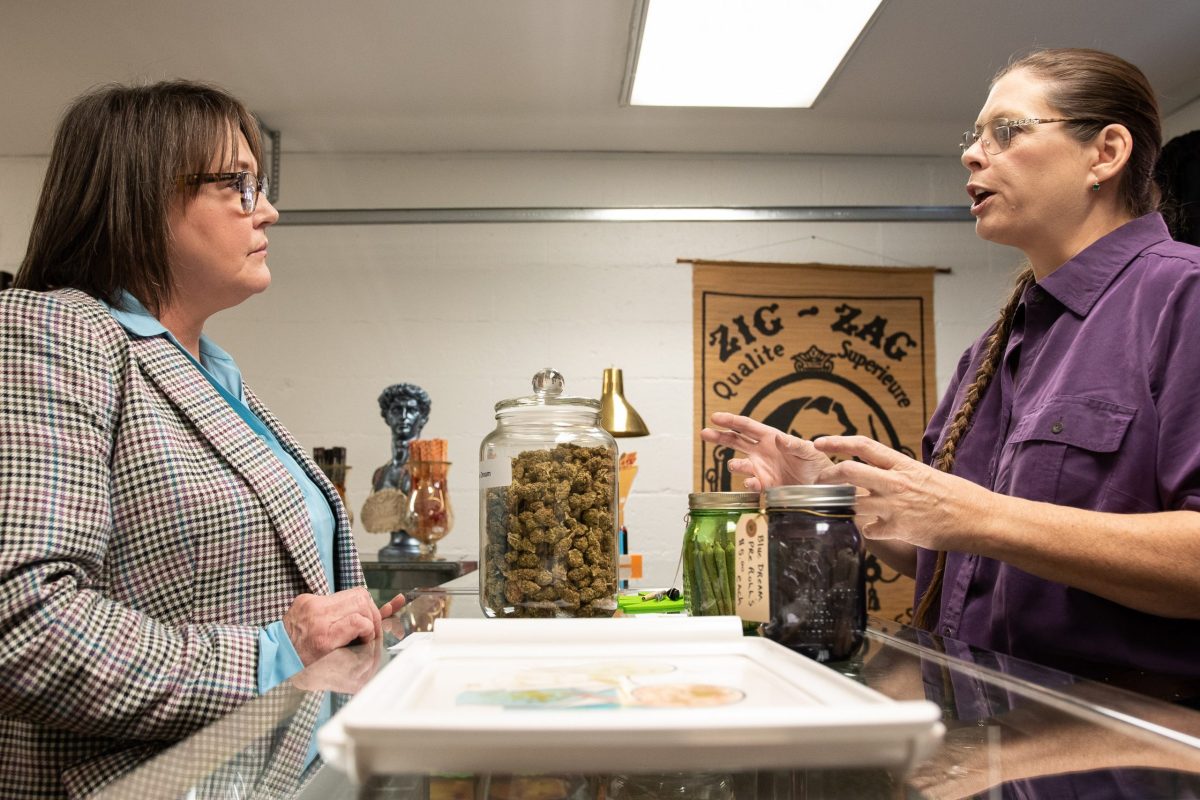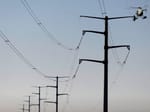Many South Dakotans feel that democracy is not working very well in America right now, but those same people are highly supportive of their own right to make law directly from the voting booth.
According to a recent statewide poll, a wide majority of South Dakota residents supports the citizen-led ballot-initiative process as a way to make laws or change the state constitution, and a significant majority said they don’t want the state Legislature to make the process more difficult.
The poll was conducted in late April through a partnership between South Dakota News Watch and the Chiesman Center for Democracy at the University of South Dakota.
In the telephone poll of 500 South Dakota residents from across the state, 74.8% of respondents said they agreed or strongly agreed that “citizen ballot initiatives are an important part of the democratic process.”
On a follow-up question, 62.6% of respondents said they disagreed or strongly disagreed that “the South Dakota Legislature should make it more difficult for citizen initiatives to get onto the ballot.”
Those same respondents show strong dissatisfaction with democracy in America overall, with 64.9% reporting they were dissatisfied or very dissatisfied with how democracy is working in America right now.
The margin of error in the poll was plus or minus 4%; respondents were generally aligned with the overall population of the state in terms of age, gender and political party.
Compared with Republicans, Democrats and Independents were far more likely to support the ballot-initiative process, and people in the age range of 18-34 were more supportive than older respondents.
The same was true on the question regarding legislative interference in the process, with Democrats and Independents the most opposed to legislative action to make the process more difficult, and those in the 18-24 age range by far the most opposed to legislative interference.
Disproportionate Republican control of the Legislature
Members of the Republican Party have a supermajority in the state Legislature, but their level of party control does not match with the party affiliation of registered voters across South Dakota. Republicans make up about 90% of the legislative roster but only 48% of registered voters.
LEGISLATIVE PARTY REPRESENTATION
House: 62 Republicans, 8 Democrats — 88.6% GOP/11.4% DEM
Senate: 32 Republicans, 3 Democrats — 91.4% GOP/8.6% DEM
SOUTH DAKOTA VOTER REGISTRATION
Republicans — 48.0%
Democrats — 27.1%
Independent/NPA — 24.2%
Libertarian/other — 0.7%
Source: South Dakota Secretary of State
The timing of the poll may have influenced the results. The survey was done six months after the November 2020 election in which South Dakotans voted for legalization of medical and recreational marijuana, but both measures have been challenged.
On medical marijuana, Gov. Kristi Noem pushed for a one-year delay of legalization and implementation, a proposal rejected by lawmakers. On recreational marijuana, Noem was the driving force behind a lawsuit challenging the legality of the measure now under consideration by the state Supreme Court.
Some users of social media have expressed deep disappointment that Noem and the Legislature have intervened to stall marijuana legalization, which passed with 70% of the vote for medical and 54% for recreational.
Amy Scott-Stoltz, president of the League of Women Voters of South Dakota, said poll respondents seemed to express their understanding that ballot initiatives are critical in a state like South Dakota, where one party has a supermajority over the legislative process.
Right now, the South Dakota Legislature is made up of 94 Republicans, 11 Democrats and no Independents.
The breakdown by chamber is 62 Republicans (89.6%) and 8 Democrats (11.4%) in the House of Representatives, and 32 Republicans (91.4%) and 3 Democrats (8.6%) in the Senate. This past session, three Senate committees — where the heavy lifting of the lawmaking process occurs — did not have a single Democratic member, including the judiciary, taxation and military and veterans-affairs committees.
That level of Republican control is significantly disproportionate to the statewide breakdown of voter registration by party.
As of early May 2021, there were about 584,400 registered voters in South Dakota. Broken down by party affiliation, there were about 280,500 Republicans (48%), 158,200 Democrats (27%) and roughly 141,500 Independents or those with No Party Affiliation (24%).
The outsized level of Republican control of the Legislature does not allow for a variety of voices to be heard or new ideas to arise, Scott-Stoltz said.
Not only do non-Republican lawmakers have little power to propose or pass legislation, Republicans also have a hard time breaking away from the wishes of party leadership, Scott-Stoltz said.
“Right now, 50 percent of the population may not be represented in the Legislature,” she said.
Supermajority GOP control makes the ballot-initiative process the only viable way for non-Republicans to bring forth new laws or constitutional amendments, she said.
“The ballot initiative gives the people a way to pass their own laws,” Scott-Stoltz said. “The state motto is, ‘Under God, the people rule,’ and the ballot initiative the best way to live that motto.”

“The ballot initiative gives the people a way to pass their own laws ... the state motto is, ‘Under God, the people rule,’ and the ballot initiative the best way to live that motto.” -- Amy Scott-Stoltz, president of S.D. League of Women Voters
Rich initiative history in South Dakota
South Dakota was an early adopter of the process known as “direct democracy,” in which citizens or the state Legislature can place a proposed law or constitutional amendment on a statewide ballot and let voters directly decide its fate.
In 1890, South Dakota held its first statewide ballot, which included a measure to cap state debt at $500,000, another to give women the right to vote, and a third to restrict voting rights of some Native Americans. All three measures were put on the ballot by the state Legislature and all three were defeated.
Since then, the state has undergone changes to allow citizen-led initiatives to provide a way for voters to make their own laws outside the legislative process.
From 1996-2018, a total of 74 ballot measures made it to the statewide ballot, and voters approved about 40% of them.
In the past decade or so, the process has been used to enact a statewide ban on indoor smoking, increase the minimum wage for workers, require a balanced state budget, and expand gambling in Deadwood.
Lawmakers have taken several steps in recent years to alter the petition-circulation and ballot-measure process, moves that supporters say make the process more fair but that opponents say are attempts to restrict access to the statewide-ballot process.
In November 2018, South Dakota voters approved Initiated Measure 24 that would ban out-of-state contributions to ballot-measure campaigns; a judge later ruled it unconstitutional.
Also in 2018, lawmakers referred a constitutional amendment to the statewide ballot to require a 55% passage threshold for future initiatives, which voters defeated. A separate measure to require future ballot measures to contain only one topic was passed.
In the latest legislative session, lawmakers passed and the governor signed a law to create a registry of petition circulators, require them to wear badges, and make some of their personal details, including phone number and email address, public information. A judge recently ordered a stay on part of that legislation. Lawmakers last session also passed a law requiring ballot language on petitions to be printed in at least 14-point type size.
Former House Speaker Mark Mickelson, a Republican from Sioux Falls, was a primary supporter of IM 24 and the single-subject measure on the ballot in 2018.
In an email to News Watch, Mickelson said he felt then and still does that the South Dakota initiative and constitutional-amendment process is vulnerable to outside interests.
“The current ballot initiative measure [process] is not really being used by grass-root South Dakotans but rather has been co-opted by out-of-state, moneyed interests that use our inexpensive media markets and low signature gathering requirements as a way to test out their ideas,” Mickelson wrote.
“I do think we should protect our constitution from this process as much as possible, which is hopefully what the 2018 single-subject constitutional amendment did. Any mistakes that are made in statute can more readily be considered for fine tuning,” Mickelson added.
Senate President Lee Schoenbeck, R-Watertown, said recent legislative action regarding ballot initiatives has been aimed at protecting the integrity of the initiative process.
Schoenbeck said he wasn’t surprised by the poll responses that showed strong general support for the citizen-led ballot-initiative process.

Although he said he supports the right of citizens to bring measures to a statewide vote, Schoenbeck said the process has been hijacked by out-of-state groups that use South Dakota as a testing site for ballot measures that may eventually be brought forward in numerous other states.
Schoenbeck said the state’s relatively inexpensive advertising rates in statewide media and a low signature-collection threshold have made the state vulnerable to national advocacy campaigns that seek to pass laws that state legislatures will not.
“South Dakota strongly supports its citizens’ right to legislate at the ballot, but out-of-staters are using us because we’re a cheap media market, and I don’t like us being their petri dishes,” Schoenbeck said.
Schoenbeck also told News Watch that he believes recent ballot measures have been too long and sometimes address more than one topic, making it hard for voters to know exactly what a measure will do and hard for them to make a fully informed decision. The 2020 Initiated Measure 26, which would legalize medical marijuana, contained 96 separate sections of information in its full form.
“These people are dragging out these ballot measure that are 25 pages long when you could do it in two paragraphs,” he said. “The only reason you add volume is to confuse or to hide the full issues.”
Schoenbeck backed a joint resolution in the last legislative session to put a measure on an upcoming statewide ballot that would require a 60% majority vote for some measures to pass instead of the 50% threshold now in place. That measure would apply to initiatives that create new taxes, raise taxes or cost more than $10 million if implemented. Schoenbeck drew criticism for successfully amending the resolution to put the measure on the next primary election ballot that is typically dominated by Republican voters.
Schoenbeck said the News Watch/Chiesman Center poll question about whether the Legislature should make it harder to get measures on the ballot had an inherent bias and was destined to have responses in strong disagreement.
He said a rephrased question about whether the Legislature should make the initiative process more fair and keep advocates from outside the state from hijacking the process would have been strongly supported.
“Fairness isn’t easy to get,” he said. “We can be lazy, disregard fair and make it really easy, but fair should mean that if you want me to sign the petition and put something on the ballot, you should have a readable version of what you’re proposing.”

National attacks on initiative process
Lawmakers, mostly Republicans, in other U.S. states have been increasingly proposing or passing laws to make it harder for citizen-led initiatives to get on the ballot or make it easier to alter or throw out the results, according to the progressive Ballot Initiative Strategy Center. The center is tracking 125 bills in 28 states that would make it harder to get initiatives on the ballot or for them to pass.
South Dakota lawmakers are part of a national increase in the frequency with which state legislatures alter or throw out completely ballot initiatives that have been passed by voters.
According to the election-tracking website ballotpedia.org, voters in U.S. states passed 43 statewide initiatives from 2010-2015 and legislatures altered 9, or about 21% of the total. From 2015-2018, state voters approved 56 initiatives, of which 19, or 34%, were altered by legislatures.
The South Dakota Legislature in 2017 voted to repeal Initiated Measure 22, a ballot initiative that would have created an ethics commission, implemented public funding of election campaigns and increased regulation of lobbying. The measure passed with about 52% of the vote, but lawmakers repealed the act and then-Gov. Dennis Daugaard signed the repeal.
One instance of out-of-state interests using the South Dakota initiative process to further their national goals came in 2018, when South Dakota became one of many states to vote in favor of the constitutional amendment known as Marsy’s Law. The measure, proposed and backed by out-of-state interests, expanded notification efforts for crime victims and enhanced victim privacy rights, but has since created challenges for law enforcement, the courts and the news media in determining what criminal information can be made public.
Rick Weiland of Sioux Falls, a former Democratic candidate for U.S. Senate, has led a number of ballot-initiative efforts and is now part of a group called Dakotans4health that is pushing a ballot measure to expand Medicaid eligibility.
Weiland said respondents in the News Watch/Chiesman poll support the initiated-measure process because they lack confidence in the state Legislature to enact sensible legislation on a variety of issues. Weiland said recent versions of the Legislature have spent an inordinate amount of time legislating on moral issues or, for example, trying to limit the rights of transgendered people.
“The Legislature is out of step with the voters, I think that’s obvious,” Weiland said. “Are these ideas that citizens are launching in the state of South Dakota bad for the state? No, but they just can’t get them done in Pierre.”

Weiland said he also is not surprised by poll results showing opposition to legislative efforts to make the ballot-measure process more difficult. He said voters are fully aware and do not appreciate that lawmakers tried to reduce the minimum wage for some younger workers after voters had passed the higher pay rate, and that lawmakers tossed out the IM22 ethics commission and lobbying reforms.
“There’s been an unrelenting attempt by the Legislature to undo the citizens-initiative process,” Weiland said. “They’ll say it’s accountability but we just look at is a suppression of democracy. They really don’t like the voters taking this legislative power into their own hands when the Legislature fails to act.”
The League of Women Voters of South Dakota is engaged in an effort to collect signatures to put a measure on the 2022 ballot that would create a redistricting commission that Scott-Stoltz said would reduce gerrymandering and restrict lawmaker influence over the critical process of drawing their own legislative boundaries.
Other ballot measures proposed for the 2022 election year include a proposal to expand Medicaid eligibility for more low-income residents and another that would open primary elections to non-affiliated candidates and voters.
Scott-Stoltz said the entire process to get a measure on the statewide ballot is difficult, time-consuming and expensive, and has been made more cumbersome in recent years by lawmakers.
“Doing a ballot measure right now is already complicated and difficult and has many roadblocks put up in front of us that seem to be roadblocks solely for roadblocking sake,” she said. “Making it more difficult just seems counterproductive to the way South Dakota is supposed to be, where the people should have the strongest voice, not the party leaders.”





